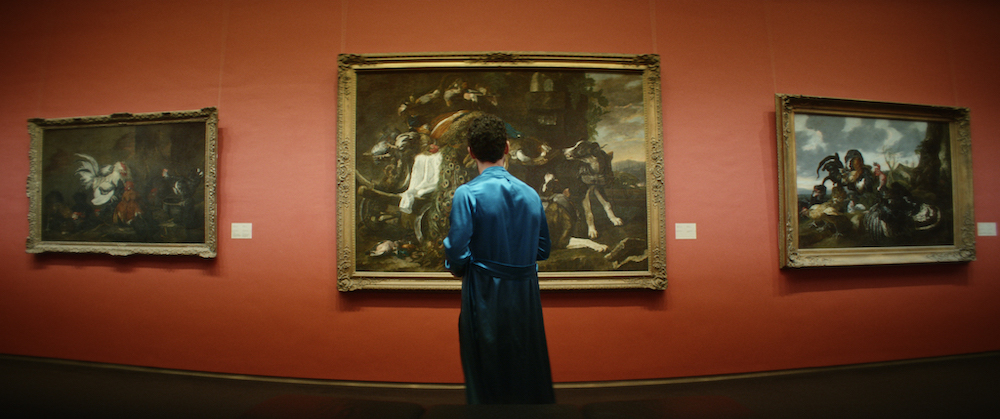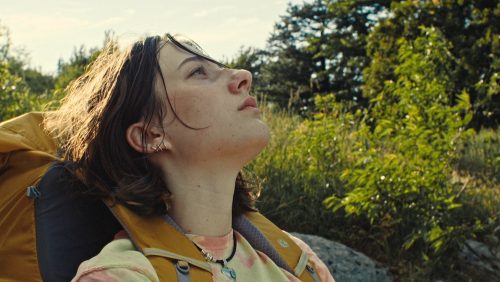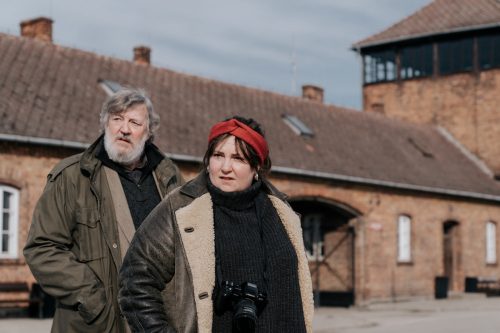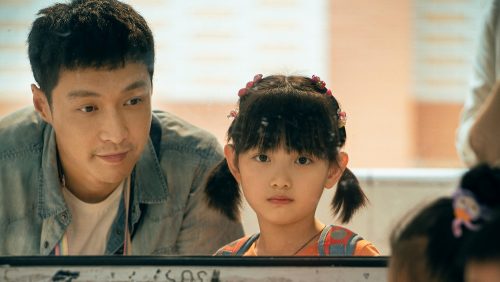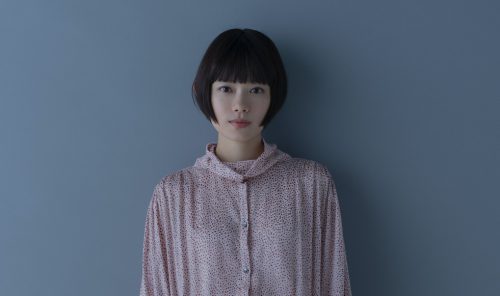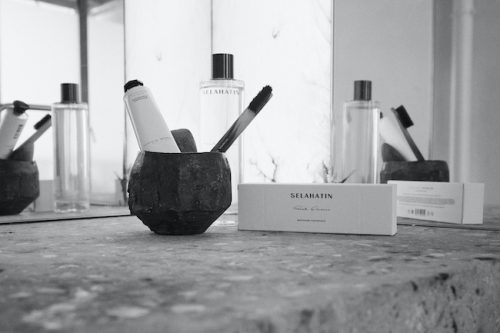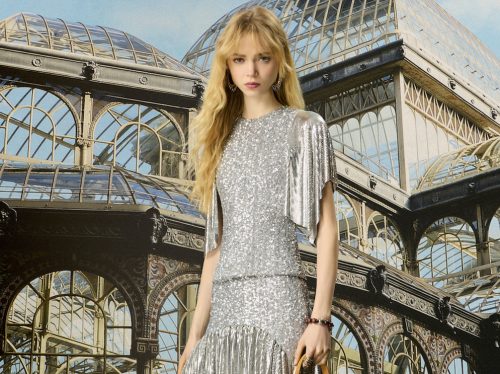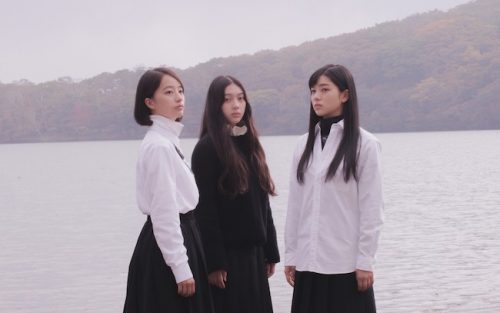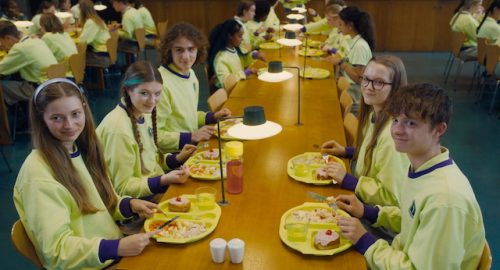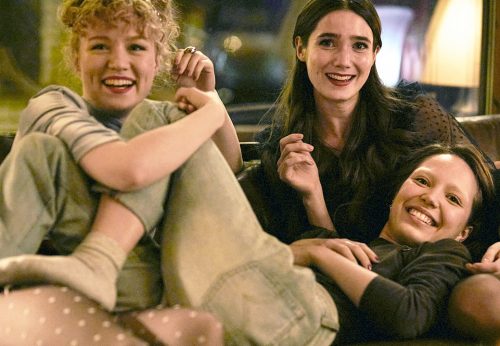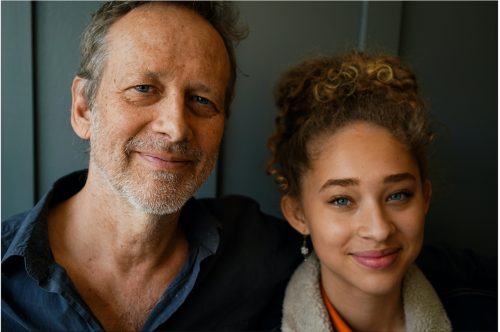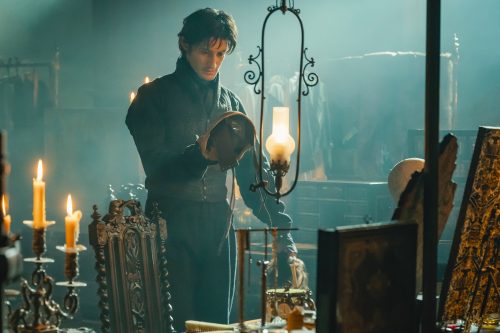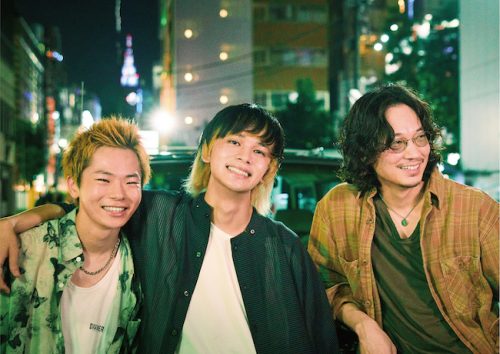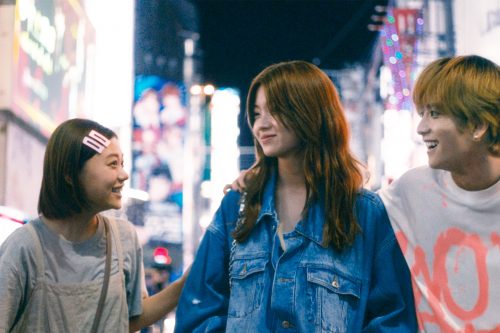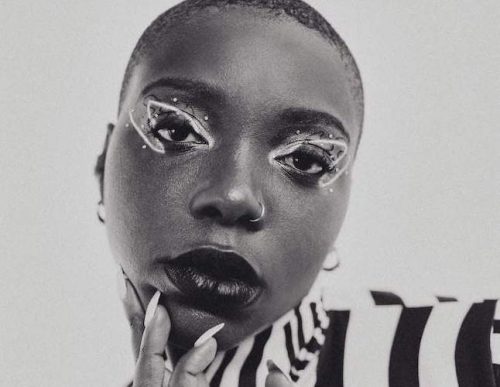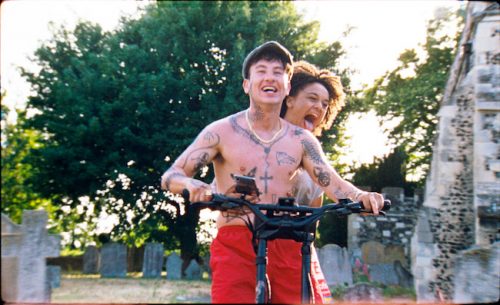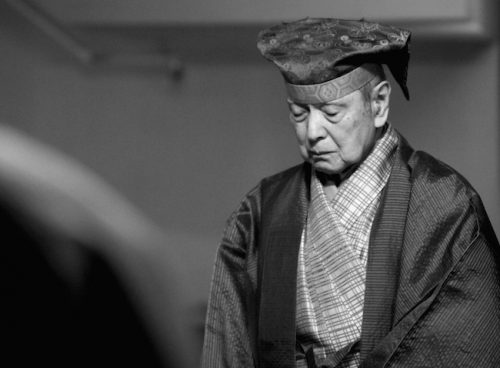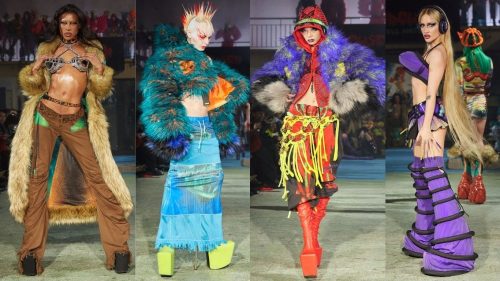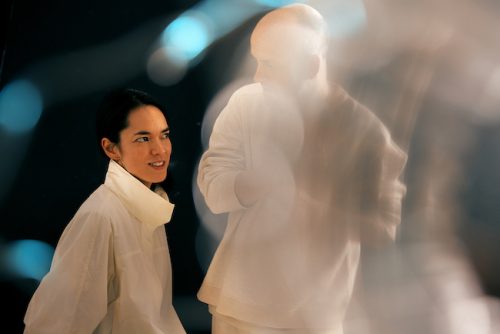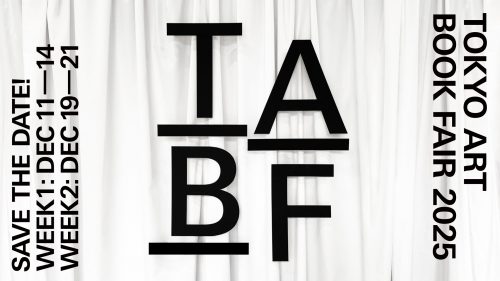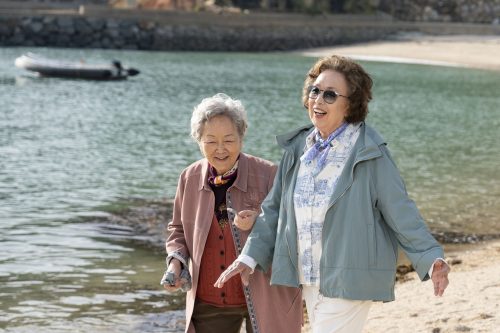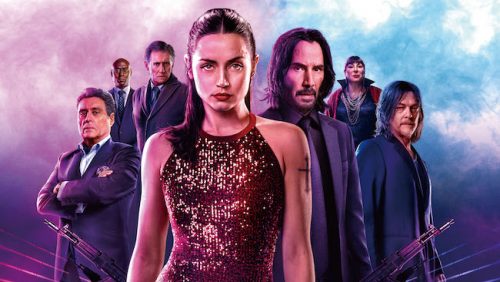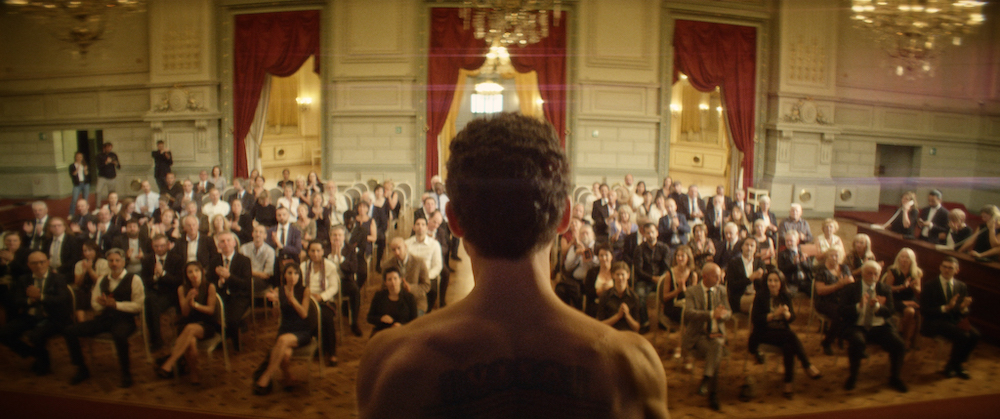
――Thank you so much for this spectacular film. And thank you for producing works , as a woman, such as“Beauty and the Dogs” and “Challat of Tunis”.
Using the composition of suspense while bringing up existing issues, this work captivates its audience. How did you balance the entertainment aspect with its theme?
Kaouther Ben Hania : It’s not an easy balance. My main obsession was to make a movie that myself , as an audience would want to see. I think about the audience all the time. Putting myself as an audience, there are some things I don’t love. I don’t like it when I don’t understand things. I don’t like it when it’s too screwed or when it’s too boring. So you go back and forth between you as an writer, storyteller, and you as an audience. The audience is the part of me as an artist, telling me “It’s not good enough, you can do better, write it again”. In this process you advance and this is the creative process. This is where you shape the story to what you want to see in a form of a movie.
――This film was inspired by Wim Delvoye’s work,‘TIM’(Tim Steiner). In fact, he appears in the film as the insurance agency. Wim stated that the art scene has revolved around the economy. He warned how social change and issues are being neglected, and similar problems exist in the film industry. Was this film directly inspired by Wilm Delvoye’s work, or was it inspired by his attitude towards art production?
Kaouther Ben Hania : All these things are together. They are very different levels. ‘TIM’was the trigger, it was the starting point where you start thinking about all those issues. It gets you to think about the art market and the cinema, cinema market. All those things came together. It’s not only one thing that triggered it.
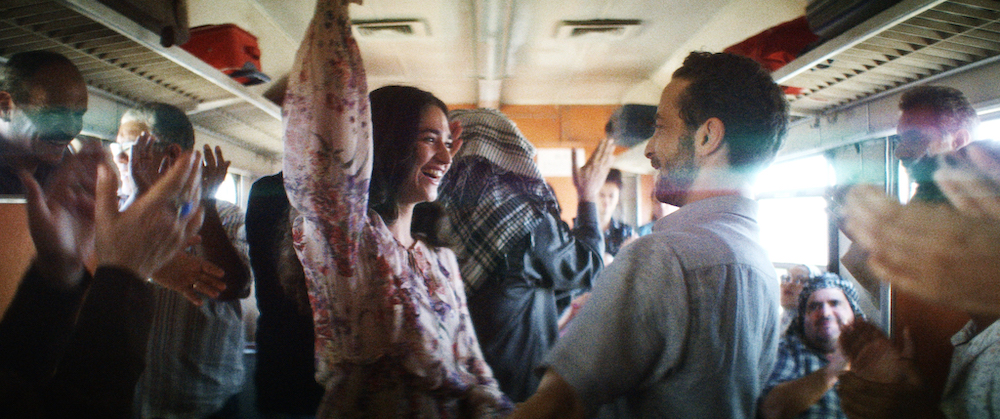
――I read an interview that you often reflect some of your personal experiences in the movie. What would be that section in this film?
Kaouther Ben Hania : Not my personal experiences, but my personal possibilities. I’m not drawing a biographical story of my life, it would be very boring. But I’m asking myself about my possibilities. Because when I think about Syrian refugees, I’m not a Syrian refugee. When I think about an artist, I’m an artist but not in contemporary art or gallery owner. I’m not a young girl in love, married to another guy. So all those characters are like possibilities of me as an immigrant. I faced the visa issue, to come to Europe, the Schengen Visa and all the walls in front of an immigrant. These are somethings that I know. Living under dictatorship, as the main character, or when you say something wrong you are afraid that the police would come knock on your door. These are things that I know. So you take from yourself the possibilities of character and you nourish those characters with those things you are familiar with. Even if your character is not Tunisian, or a women. You let your imagination do this work and direct actors for this character. He then brings his word, his body, his voice, his face, his emotions to make it more rich or more authentic.
――In exchange for rights to stay, Sam Ali must obey the western upper class. The film touches on westernization and the imbalance of international relationships. How is the refugee situation reflected through this storyline?
Kaouther Ben Hania : My film is not the common refugee story because the common refugee story involves the boat, crossing the sea, crossing the frontier, facing police, all those things. In my story it’s a very singular different story. It’s not something that happens to all refugees. I wanted to avoid all the refugee cliches, the victimization of the refugees, to tell this story. To me refugee is a kind of naïve gaze that introduce us to the artwork so we can see it without the sacred thing that surrounds the artwork. Which is dictated by the official establishment and cultural point of view by an ordinary guy in survival mode. He’s a refugee but he’s also our main character that introduces us to this artwork.
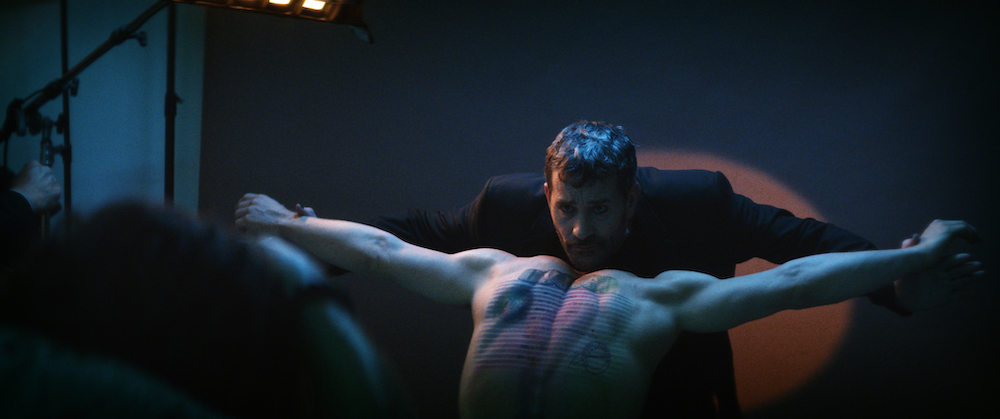
――The passport was a big symbol of freedom in the film. At the same time, we saw the passport is strongly related to money and politics. To you, and to the movie what meaning does the passport hold?
Kaouther Ben Hania : I mean the passport is a human invention first of all. Because when Homo Sapiens went from Africa, Middle East and Europe they didn’t have passports. It’s a very recent invention. The passport came with the idea to regulate and control who lives where and who changes from one country to another. Little by little it became something that is used to classify people. There is a document about ranking of passports in the world, the best passports, the best economy, the best thing. When you see people from the low list, they have less and less countries they can go to. We are refused you know. Just for the fact that you are born in this place in the world, you are not a first-class citizen. Not that you are more dangerous, or less intelligent, it’s only based on your passport you hold. So, yes the passport itself has a lot of meaning and one of them is this meaning. That’s why when Sam Ali meets the artist he tells him, “You are born in the right side of the world”because he knows he wasn’t born in the right side of the world. His passport can’t allow him to go, that’s why he accepts the truth and puts himself in the situation. He doesn’t have the same treatment in the world.
――In the film the protagonist Sam Ali travelled between the lines of being owned and owning himself. He agreed to sit in exhibits, but he had his own form of rebellion as well. By showing these two sides oh him, what did you try to show in this movie?
Kaouther Ben Hania : This movie is about the body. The body that started at the jail, the first minute of the movie, he was with many anonymous bodies. These kinds you don’t own your body. Your body belongs to the state. What you have said from your mouth can put you into this situation. In order to be free, he accepts to sell his body. The movie is also inspired by Faust Legend where he sells his soul to the devil, Mephistopheles. This discussion comes between Sam Ali and the artist. In the film he doesn’t sell his soul because it isn’t a concrete thing. He sells his body and stays in this jail till the end resolution. Sam Ali smiles when he enters to another jail. It’s a different situation here. In this jail he’s more free which is a contradiction. His body that he possess, doesn’t belong to only him. Everybody wants it. So there is this contradiction that when you are free your body isn’t free. The body doesn’t mean anything, you can only feel the unjustice of the situation, and that is why you have to use it to free youself. That’s why he mimics the bomb explosion. He’s using his body in a threatening way, calling imagination and fear. In this way he knows that he can be free.
So this movie is about freedom and how it’s very difficult to be free. Even for the artist we think that he is free because he has the freedom of travel, freedom of speech but at the end we discover that he’s not that free. He depends on a system that he nourish and he needs the system and the system needs him. So, the film is about the notion of freedom.
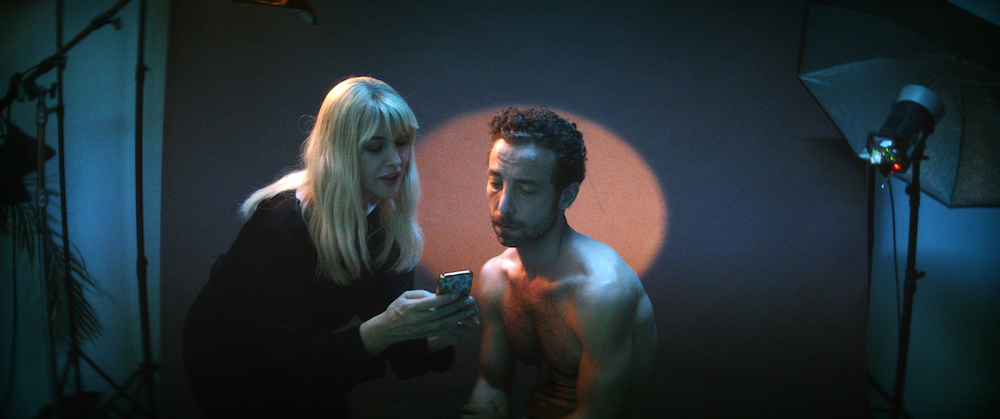
――Monica Beruccias acting was also stunning. It’s nice to hear that she agreed to act after watching your film,“Beauty and the Dogs”. What did she feel after seeing your work, “Beauty and the Dogs”? And how was it working with her?
Kaouther Ben Hania : Yes she loved it. That’s why she accepted to work with me because she saw “Beauty and the Dogs” and she loved it. And she had the secondary part but she was really excited. She loves working with women directors as well. It was really a pleasure to work with her because I don’t know her and I ‘ve never met her and she is a star. I never worked with stars before in my movies so I was afraid to approach a star and cast her in my movie. It was mainly my agent who sent her my screenplay and she said yes automatically. It was really great. On the set I forget that she is a star because she was like any of the actors I was directing. But when some extras arrived, they took selfies with her. That was when I felt that she was a star.
――Her fake blonde seems to be a symbol of bourgeoise that mimics the“Western”. What metaphor did this represent?
Kaouther Ben Hania : Yes it was a funny idea because I wanted her to be fake blonde and she was excited about the idea. We were talking about her character and she told me it was an obscure character who doesn’t know her origins. She wanted to be accepted to the world of contemporary art by hiding her origin with the blonde wig but there is fakeness to the character. So when I told the producers, we have many producers, that Monica would be blonde, they were upset. Because they knew she was the most beautiful brunette in the world. Making her blonde was like sacrilege. But I was sure that the character needed this small fake things to make Soraya richer. I did the sacrilege and made Monica blonde and it was great.
――How relevant are art to our lives?
Kaouther Ben Hania : I actually meant “Art make us live longer”. Art gives us meaning. We lack meaning, life is very chaoitic. Like religion, it gives us meaning. As our life are becoming more and more complex, art is there to give us meaning. By having meaning we can be more in peace with ourselves, thereby live longer.
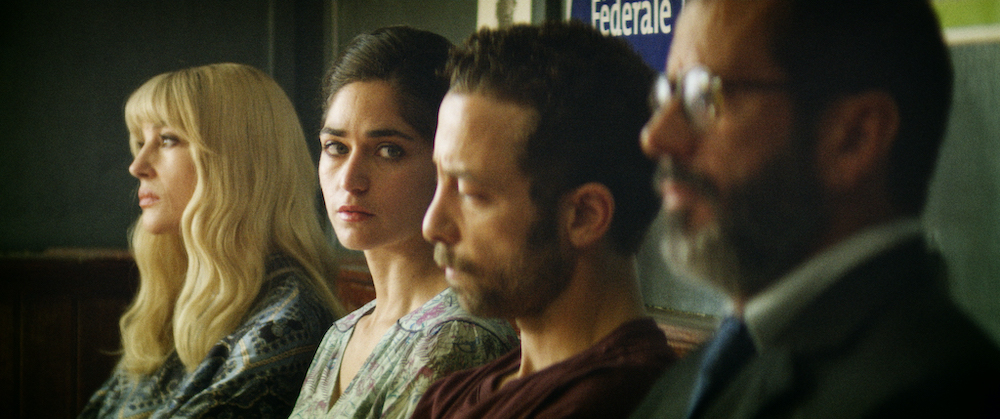
――This is a personal question, Azzedine Alaia is one of my favourite artists. He is a great fashion designer. Please tell us any memorable experiences, having to work with him.
Kaouther Ben Hania : I think that Alaia was a father figure to me. It’s always very joyful to see Alaia because he’s Tunisian. I met him when my movie, “Beauty and the Dogs” was at Cannes. He did the dress, since it was Cannes Red Carpet. So I told myself this is the moment to introduce myself as a young Tunisian director that wants to be dressed by you. So I met him and it was real joy to me because he was an artist obsessed by his work, very humane, with an heart and loves women. This guy knows women very well. That’s why he was a father figure to me. When he died I was very sad as if my dad died because he was still young. It was a stupid accident and its very painful and you feel that it wasn’t fair but it was destiny. He still had a lot to give.
When I started working on “The Man Who Sold His Skin”, I wanted to have some of his dresses in the movie. There are maybe three or four dresses from Alaia in the movie. We had this partnership with Alaia’s house Haute Couture to give us those dresses. It was a way for me to stay linked to Azzedine Alaia.
――Currently you are working on a documentary film. Can you tell us what it’s about?
Kaouther Ben Hania : Yes, it is a documentary. I don’t like talking about the movie before shooting because for me it’s not concrete. It is a story about a woman and four girls, a mother and her daughters. The two older daughters went to join ISIS years ago. It will be told from the perspective of a mother-daughter relationship and discusses the trauma that we carry and pass to our children.
